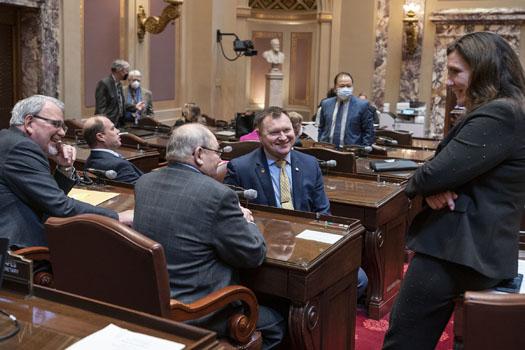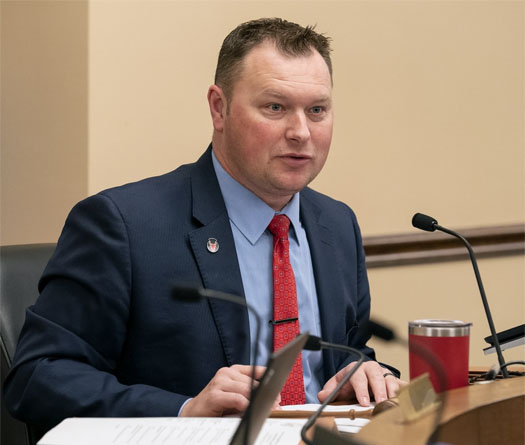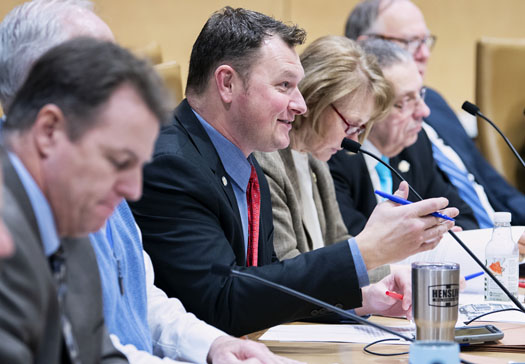
MN Senate Republican Caucus
Senate, House pass bipartisan Agriculture, Broadband, and Drought Relief bill—helping Minnesotans connect and supporting farmers
Posted: May 5, 2022
Read this story on the MNSRC website

Today, the Minnesota Senate passed a significant bipartisan agriculture, broadband, and drought relief bill to help Minnesota farmers and families. The legislation expands broadband funding, provides relief to farmers still struggling from the aftereffects of last year’s historic drought, and addresses urgent concerns in our agriculture sector, including the ongoing Highly Pathogenic Avian Influenza (HPAI) crisis.
Included in the bill is language that builds on a grant program previously authored by Senator Andrew Lang (R-Olivia), which passed last Session as a means to support livestock processing issues. Today’s bill includes further investments in meat cutting and butchery training programs; money to start, modernize or expand meat, poultry, dairy, and egg processing facilities; and grants for training high school students and employees of small processors.
“This bill strikes a balance between supporting farmers and ensuring Minnesotans have access to reliable internet,” said Lang. “The agriculture industry has faced numerous struggles throughout the last few years, and this bill addresses their challenges by making smart investments that help families and farmers across the State. I’m especially glad to see language included that expands the modernization and expansion of processing facilities, which will help alleviate processing issues and shortages faced in the industry. We also investing key funding into broadband expansion, ensuring Minnesotans across the state can connect in a modern economy.”
The bill appropriates $8.1 million in drought relief grants for livestock and specialty crop farmers to help them recover from last year’s drought. Furthermore, the bill includes $2.5 million to the Rural Finance Authority (RFA) Revolving Loan account to help Minnesota farmers, with relief prioritized for those affected by drought.
Minnesota farmers are also facing animal disease threats from African Swine Fever (ASF) to the bird flu outbreak. To prevent an agricultural disaster, this package includes $1.5 million for the Veterinary Diagnostic Laboratory (VDL) at the University of Minnesota to purchase equipment to test for avian influenza, African Swine Fever, chronic wasting disease (CWD), and other animal diseases. The bill also includes $3 million for the Minnesota Department of Agriculture’s Agricultural Emergency Account with funding going to animal disease testing and response. This is in addition to the $1 million in funding the legislature already provided to the account this session, however it has been expended due to the avian influenza outbreak.
Additionally, the legislation directs over $210 million, the bulk of which comes from federal funds, to improve Minnesota broadband access across the state. This is in addition to the $70 million in federal funds that the legislature directed last session. This includes up to $30 million for the Lower Population Density Pilot Program to connect hard to reach unserved areas, up to $15 million for the Line Extension Program to connect difficult to reach individual homes, up to $15 million for updated broadband mapping, and the remaining funds to the successful Border-to-Border Broadband grant program.
The bill was passed by the House late Saturday night and by the Senate on Sunday. The legislation now awaits Governor Walz’s signature to become law.


